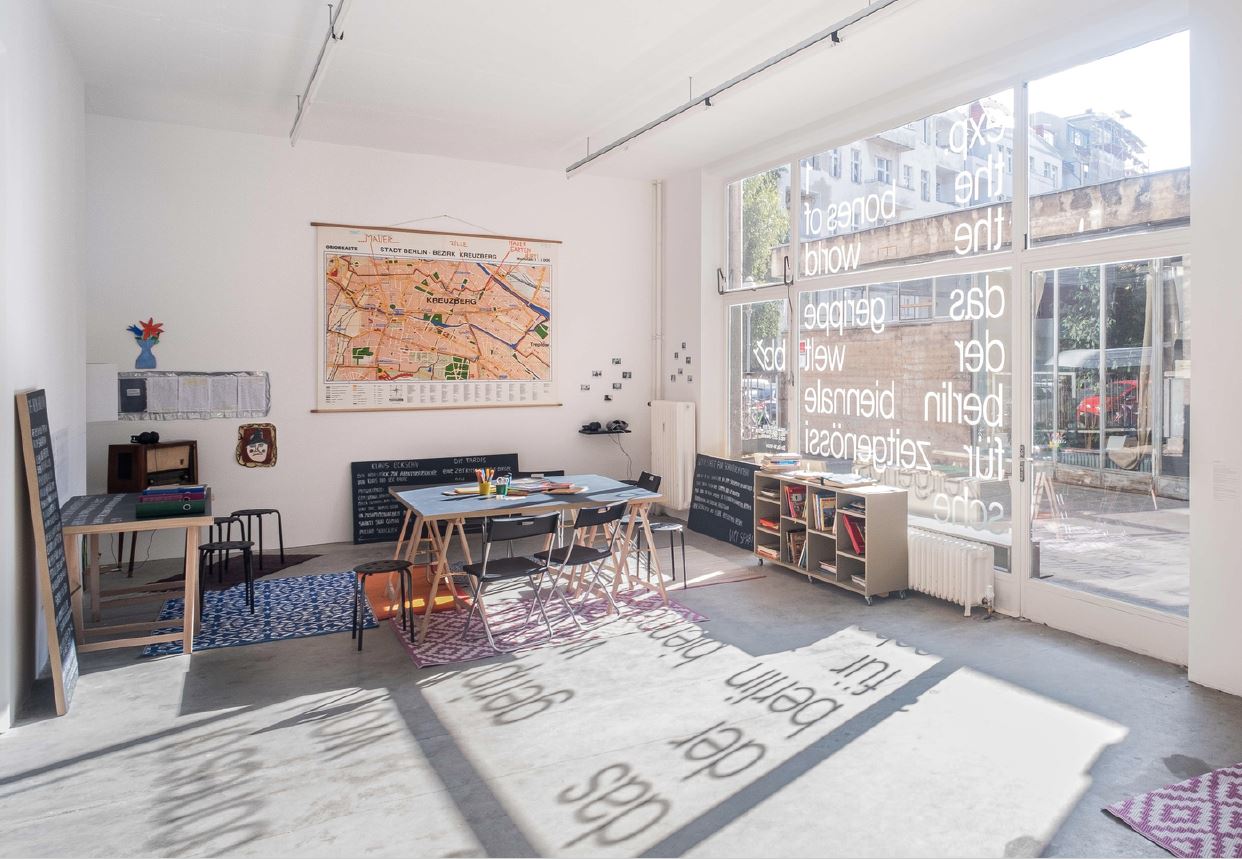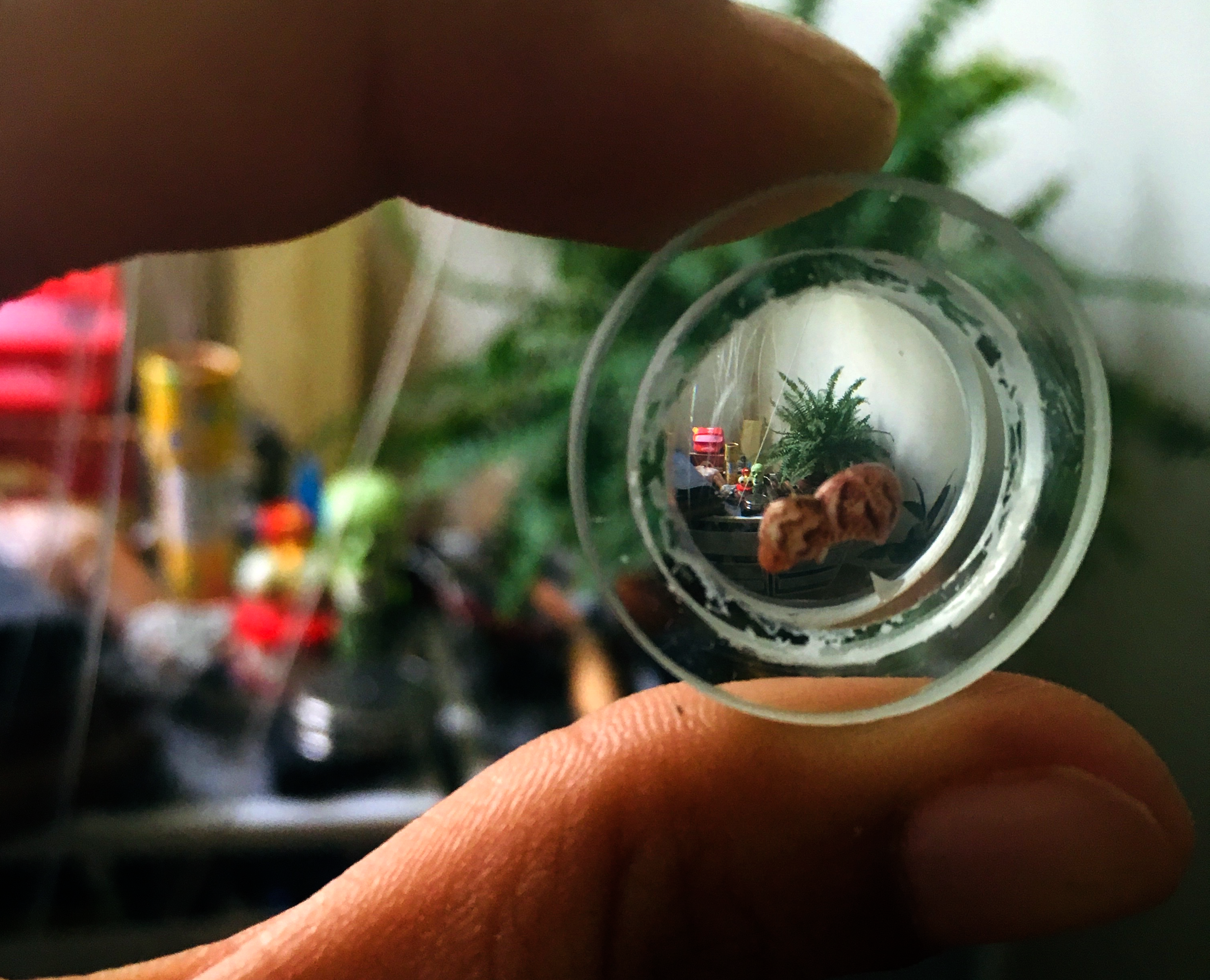Material Voices
MATERIAL VOICES 1: MARÍA BERRÍOS & AGUSTÍN PÉREZ RUBIO, VINITA GATNE
by
The first session of Material Voices: Feminist genealogies of the work of making exhibitions is composed of a conversation between María Berríos and Agustín Pérez Rubio and offerings by Vinita Gatne. The programme will take place in 2021-2022 and will consist in a series of encounters at Bulegoa z/b. In each encounter, two speakers will be invited to talk together about a particular exhibition, with a third guest presenting a work from a different context.
Material Voices: Feminist genealogies of the work of making exhibitions aims to investigate curatorial practices and women’s labour from the sixties until today. The programme uses dialogue as a tool for research. It explores the materiality of voices, exhibitions and artworks, and the intersections between them.
The dialogue between María Berríos y Agustín Pérez Rubio will take place at Bulegoa z/b’s space.
To take part in this session in person or online please contact bulegoa@bulegoa.org
YOUTUBE: https://youtu.be/dFJrGh7JrcQ
CAPACITY: 15 maximum
Opening hours for offerings by Vinita Gatne: April 23, 24, 29 & 30 from 4:30 to 8:00 pm.
MARÍA BERRÍOS & AGUSTÍN PÉREZ RUBIO: BETWEEN BREAKAGES AND CARING. FOR SUSTAINABLE RELATIONS IN CURATING
The 11 Berlin Biennale first opened its doors on 6 September 2019 with exp. 1: The Bones of the World and received its last visitors on 1 November 2020 on the last day of its epilogue, The Crack Begins Within. The varied trajectory between these moments created a Biennale that was conceived as a series of living “experiences” by the curatorial team, which was made up of María Berríos, Renata Cervetto, Lisette Lagnado and Agustín Pérez Rubio. The biennale was grounded in a feminist, South American standpoint and developed as an open listening process. More sustainable relationships were sought, in exchange with the local context, to generate spaces for dialogue and international exchange, but without losing sight of the human scale. The unexpected advent of the COVID-19 pandemic reinforced and changed some of what had already transpired and forced us to reconsider our forms of mutual encounter; in many ways, this resignified the politics of caring, the genealogies of different struggles, intersectional feminisms and queer theory with regard to artistic and curatorial praxis.
Two of the curators will reflect here on the protocols, learning and educational processes that developed from the biennial as it was experienced; and on how the notions of solidarity, vulnerability and resistance, which were crucial during the course of the biennale, can be seen as feminist practice in both the work of artists and curatorial approaches.
VINITA GATNE: OFFERINGS
Offerings are a series of lenses that distort scale by making magical portals into everyday landscapes. Miniature landscapes are constructed over concave lenses which are then photographed against (land/city/sea)scapes. The work has been developed as an interactive website as a part of Zapi Zuria’s online publication.
Offerings are made to pass hands, to travel and to be in a state of variation. You are invited to take them for a walk and give them another dimension, another story, another moment.
If you wish you could also take a photo of it and together we could add it to an archive of imaginations. Email your iteration of offerings at bulegoa@bulegoa.org or upload it on Instagram tagging @bulegoazb and @virtualvini
María Berríos, Santiago de Chile, 1978. Sociologist, writer, independent curator and co-founder of the vaticanochico publishing collective. She works in the interfaces of art, culture and politics, with a special interest in the collective experiments and solidarity movements of the 60s and 70s. Berríos teaches and regularly delivers conferences in Europe and Latin America, and has published extensively on art and politics, particularly in Latin America. She has, among other things, co-curated the exhibition Drifts and Derivations (Museo Nacional Centro de Arte Reina Sofía, Madrid, 2010), Nuestro desconocido, nuestro caos, nuestro mar (Museo Experimental el Eco, Mexico City, 2014) and Alberto Cruz: El cuerpo del arquitecto no es solo un hombre (MAVI – Museo de Artes Visuales, Santiago de Chile, 2017). She was one of the curators of the 11 Berlin Biennale (2019-2020). Berríos has been a permanent collaborator since 2016 with the Hospital Prison University Archive (Copenhagen), a radio station and exhibition space run by the artist Jakob Jakobsen from the building where he and Berríos live with their son Teo.
Vinita Gatne (Mumbai, 1988) is an installation artist and scenographer who fabricates chimerical (land)scapes as a way of traversing anecdotal knowledges. By shifting the settings of reality to seldomly visited dimensions, she attempts to subvert linear narratives and dismantle abject representations. Her art installations are inherently interactive in order to question the relationality between the viewer and the object of study. Her works in scenography include the films One Emerging from a Point of View (2019) by Wu Tsang and Microresistances (2020) by Marwa Arsanios.
Agustín Pérez Rubio, Valencia, 1972. Historian, educator with wide curatorial experience in museums and institutions in Latin America and Europe. He is currently interested in researching decolonial strategies in museums, and sex-dissident artistic practices based on feminist and queer practices. Co-curator of the 11 Berlin Biennale (2019-20) and previously of the Chilean pavillion for the 58 Venice Biennale with a project by artist Voluspa Jarpa (2019). Artistic director at the MALBA (Buenos Aires, 2014-18), chief curator and director, MUSAC (Leon, 2003-13), and board member of CIMAM and the Istanbul Biennial (2017-22). Was recently distinguished as invited professor by Institut für Kunst im Kontext (Universität der Künste Berlin, 2019-20), and is also a guest lecturer at other universities and centres for artistic investigation.
Material Voices: Feminist Genealogies of the Work of Making Exhibitions is supported by the Foundation for Arts Initiatives (FFAI), New York.


